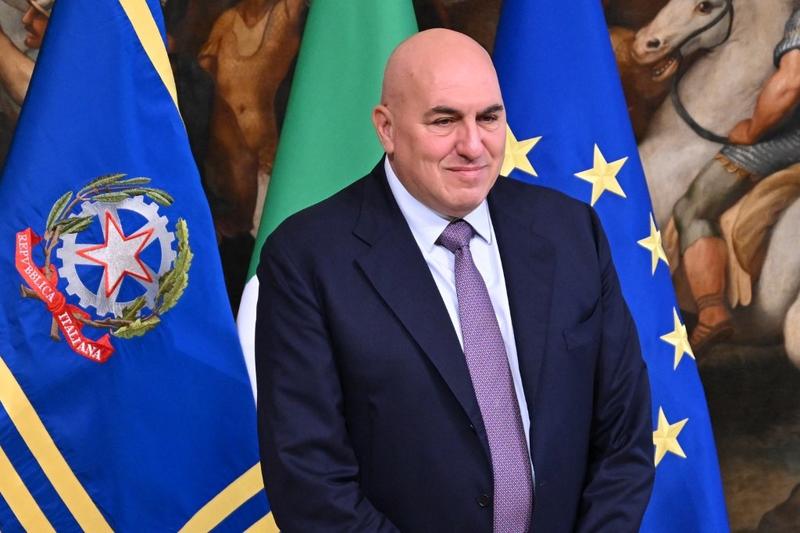 In this file photo taken on Oct 23, 2022, Italy's Defense Minister Guido Crosetto poses prior to the new government's first Cabinet meeting at Palazzo Chigi in Rome. (ANDREAS SOLARO / AFP)
In this file photo taken on Oct 23, 2022, Italy's Defense Minister Guido Crosetto poses prior to the new government's first Cabinet meeting at Palazzo Chigi in Rome. (ANDREAS SOLARO / AFP)
ROME - Italy must have equal treatment in a partnership with Britain and Japan to develop a new jet fighter, Rome's defense minister told Reuters, as talks proceed to define the roles each country has in the ambitious project.
The three nations this month announced the Global Combat Air Programme (GCAP) venture to develop by 2035 a next generation jet which would combine the British-led Tempest project with Japan's F-X program.
The partnership came as France, Germany and Spain moved forward with a rival plan to build a warplane in a broad European bid to strengthen security against the backdrop of the conflict in Ukraine
The partnership came as France, Germany and Spain moved forward with a rival plan to build a warplane in a broad European bid to strengthen security against the backdrop of the conflict in Ukraine.
ALSO READ: Japan, UK, Italy 'to unveil fighter project as early as next week'
Defense Minister Guido Crosetto, a co-founder of Prime Minister Giorgia Meloni's Brothers of Italy party, said Rome would make a final decision on how much to invest in the multi-billion-dollar project after more details had been defined.
"Italy can only continue along this path if it has the same weight as Japan and Britain on technology, research and later, if it comes to that, on the results," he said in an interview, adding that he wanted a "33 percent-33 percent-33 percent" breakdown.
Britain's BAE Systems PLC, Japan's Mitsubishi Heavy Industries and Italy's defense group Leonardo will lead the design of the aircraft, with European missile maker MBDA and other companies also participating.
Crosetto said there should be no bar on joining forces with the rival European program, adding that the GCAP should also aim to find new partners, especially within Europe.
READ MORE: Japan's defense ministry seeks fresh hike in military spending
"I think the challenge is to accelerate significantly the research and technology part and then become attractive to other nations in the next two or three years," he said.


